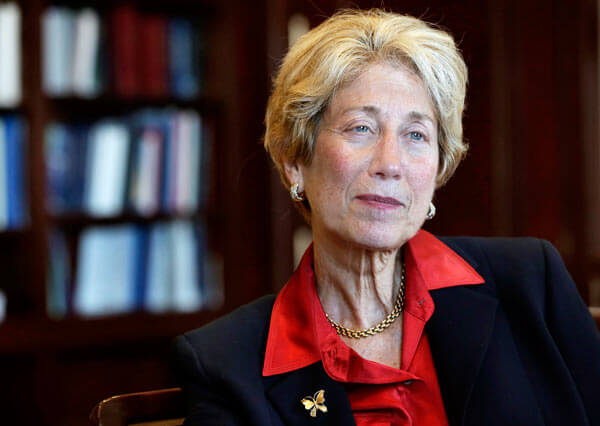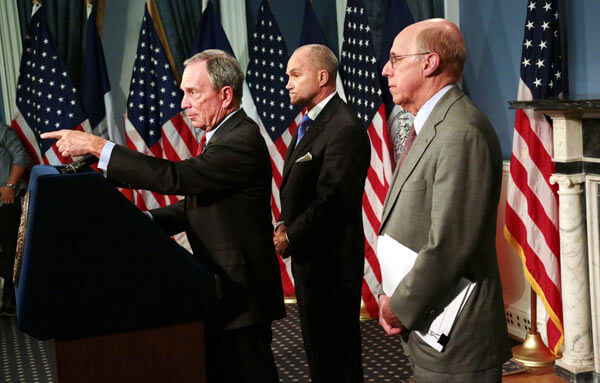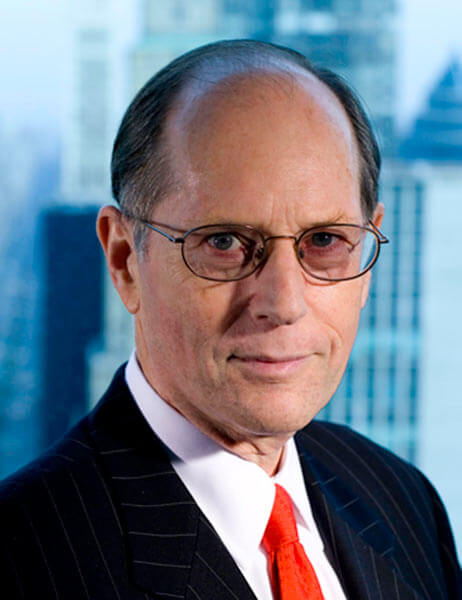By Rich Bockmann
Police in Jamaica’s 103rd Precinct will wear cameras to document interactions with civilians in a pilot program if a federal judge’s ruling earlier this week on the NYPD’s use of stop-and-frisk holds up.
Following a nine-week trial earlier this year, Judge Shira Scheindlin in Manhattan federal court ruled in a 195-page decision Monday that the city acted with deliberate indifference through its use of proactive policing policies that targeted young black and Hispanic men, and appointed an independent monitor to oversee reforms to the NYPD.
“The city and its highest officials believe that blacks and Hispanics should be stopped at the same rate as their proportion of the local criminal suspect population. But this reasoning is flawed because the stopped population is overwhelmingly innocent — not criminal,” she wrote. “In addition, the evidence at trial revealed that the NYPD has an unwritten policy of targeting ‘the right people’ for stops. In practice, the policy encourages the targeting of young black and Hispanic men based on their prevalence in local crime complaints. This is a form of racial profiling.”
The ruling said the precinct with the highest number of stops in each borough in 2012 will implement a pilot program in which police officers will wear cameras on their uniforms. With just under 13,000 stops last year, the 103rd Precinct ranked highest in Queens.
“While a person’s race may be important if it fits the description of a particular crime suspect,” the judge said, “it is impermissible to subject all members of a racially defined group to heightened police enforcement because some members of that group are criminals.”
City Councilman Leroy Comrie (D-St. Albans) said the ruling confirmed many New Yorkers’ views that the current use of stop-and-frisk violated their constitutional rights.
“Not only have the police been targeting minority and LGBT communities, ignoring the fact that more weapons and contraband are confiscated when they stop white suspects, but the way they have treated residents when they are stopped has been demeaning and abusive,” he said. “The public wants the police to keep them safe, and the reforms mandated by this ruling will help hold the NYPD accountable, while also forcing changes to policies that will build a stronger relationship between precincts and the communities they are trying to protect.”
At a City Hall news conference following the decision, Mayor Michael Bloomberg ardently defended the NYPD’s controversial practices as both constitutional and effective and vowed to take his case to a higher court.
“One small group of advocates and one judge conducted their own investigation and it was pretty clear from the start which way it would turn out,” Bloomberg said, criticizing Scheindlin for public comments she made prior to and during the trial. “Throughout the case we didn’t believe we were getting a fair trial. This decision confirms that suspicion, and we will be presenting evidence of that unfairness to the appeals court.”
Scheindlin found the department’s training policies to be unclear on what constitutes a stop and the documentation officers use to record interactions to be insufficient.
The judge did not, however, call for an outright ban on the practice.
“To be very clear: I am not ordering an end to the practice of stop and frisk,” she wrote. “The purpose of the remedies addressed in this opinion is to ensure that the practice is carried out in a manner that protects the rights and liberties of all New Yorkers, while still providing much needed police protection.”
In a separate 39-page order, Scheindlin outlined a two-phase process for reforming the department.
She appointed Peter Zimroth, a former federal prosecutor and law professor, as the independent monitor who will work with the NYPD to align its policies involving training, supervision, monitoring and discipline with constitutional guidelines.
As the department works to implement the immediate reforms, it will work with the monitor and third-party facilitator over a six-to-nine-month period on developing broader-reaching remedies.
During this time, the facilitator will hold town hall meetings in Queens and all the other boroughs to elicit community input.
Michael Cardozo, the city’s chief counsel, said the Law Department would wait until Zimroth gives a specific order before filing a request in the Second Circuit Court of Appeals to step in and block Scheindlin’s order.
Reach reporter Rich Bockmann by e-mail at rbockmann@cnglocal.com or by phone at 718-260-4574.

































